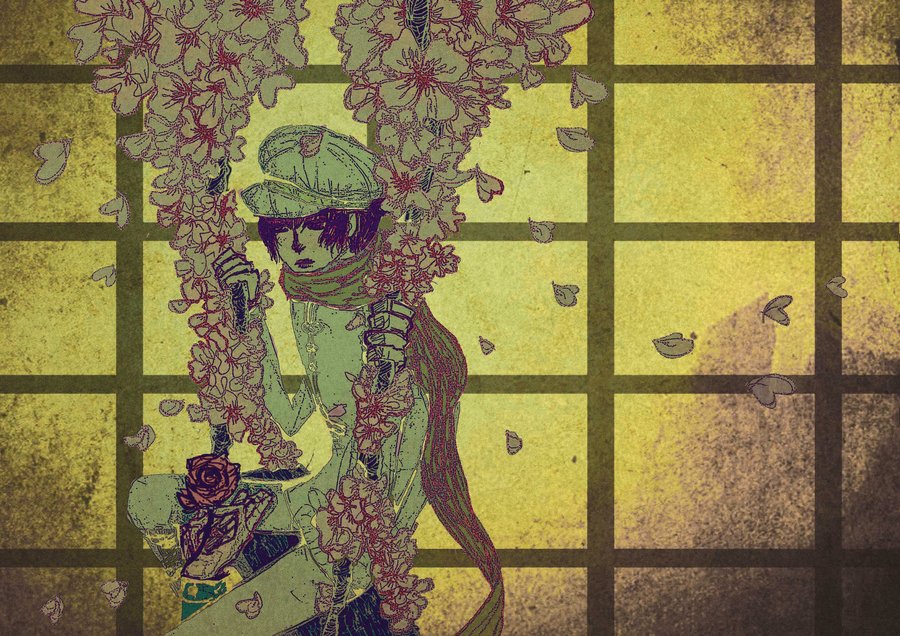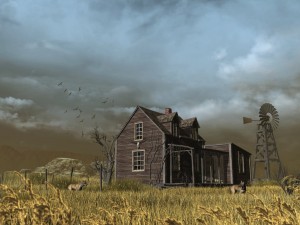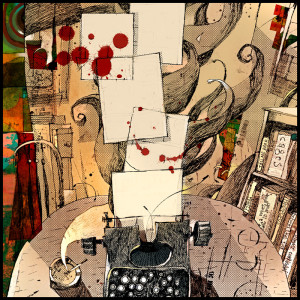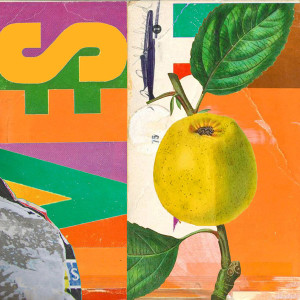When Frances had to speak publicly, her legs shook. As a kid, she had grown faster up than she had out and she had felt like two wooden stilts extended from her hipbones. “Growing like a weed!” her mother would laugh into the phone, “Our Frances, the weed.” Frances had never wanted to be a weed and she didn’t much care for dandelions. Once in the second grade, she had been assigned to take part in a wax museum and she chose to dress up as Madame C.J. Walker. When she stood up in front of Ms. Cappiello and all the Abraham Lincolns and Neil Armstrongs gathered in front of her, her knees shook and shook and she felt as though her legs were not stilts but jackhammers, and she was not just pathetically imitating the first female self-made millionaire but the San Francisco Earthquake. She got a B even though Ms. Cappiello noted she was hard to hear over the sound of her knobby knees drumming together. She knew after that she did not like public speaking because she did not like trembling. Nine years later, when she had her first grand-mal seizure, all of that seemed very funny.
Frances was still weedy and when wind whooshed around her, she quivered like a dandelion sacrificing bits of herself to the squall. Her mother, Martha, drove her to doctors appointments for the first two years willingly and then after that helplessly. On the phone, she no longer brought Frances up. When Frances laid on their dated paisley living room couch, sometimes she’d hear her mother say, “Oh, she’s in between things right now.” before deftly changing the subject.
“How is Frances?”
“Oh, she’s in between things right now.”
Frances hardly did much else besides sleep or seize these days, sleep and seize, so she guessed that she was between things. When she was not seizing or sleeping, she let the game show network hum softly in the background and laughed whenever Steve Harvey did.
Today though, June 2nd, Frances, aged 22, a white, Caucasian female once described by a teenage candy striper as “dully pretty” was having a big day. She woke up purposefully in the morning and reveled in the notion that every other house was purposefully waking up too. They had things to do after all and so did she. Her mother came down with curlers in her auburn hair and promised Frances pancakes with Vermont maple syrup. “Pretty girl, I’m making you pancakes.” Frances, whose appendages were string-like from disuse, who was sallow, vitamin D deficient and faintly blue from avoidance of the sun, felt robust and vigorous in the dawn. “Big day for us,” her mother called and Frances said, “Yeah, really big day.” instead of letting her head fall compliantly with gravity to signal agreement. She found her sea legs and voyaged to the fridge where she poured them both orange juice. It was acidic and sharp and burned against her throat.
In the car, her mother played the Bee Gees and tapped her spindle-like fingers against the wheel. She rambled on about the Mason’s barking dog and their ADHD-afflicted son and how she wasn’t sure how Leslie Mason did it. “You know Leslie teaches CCD on Sundays too” and “never forgets to put her recycling out”. Frances could tell Leslie and her mother got along because they could extol themselves through the other. You know, it can’t be easy having Frances so dependent on you Martha. And you still have the best roses in the neighborhood! It was not until they pulled past the “Stamford General Hospital” sign that her mother used the term surgery and Frances specified lesionectomy. There was a black, gluttonous hole in her temporal lobe that had swallowed up the rest of her brain. Today, the shrunken blemish would be eradicated and she would be smooth and young and more than dull.
The automatic doors opened for Frances the way they opened for everyone but it felt just for her. The nurses with patterned scrubs, and she assumed good personalities, and the nurses in plain scrubs, and she assumed bland personalities, rushed around with carts and syringes and blood pressure monitors. Her and her mother matched gaits and moved briskly, united in the gravity of their shared purpose. They marched past the emergency room, the nurse’s station, the cardiology unit, the surgical ward before arriving at the much-anticipated destination of neurology. A clean, blonde woman sat at a circular, faux wood desk surrounded by stacks of medical records detailing all variances of anatomical deficiencies. Frances’s mother gave their last name, their situation, and a strong opinion about the weather. Frances waited on an intricately ugly armchair while flipping through a 1998 edition of National Geographic for Kids. On her left, a man muttered about Taoists under his breath and on her right, a girl wore a helmet and trembled. She made sure to think no thoughts about what might be defective in either of them, only as to what might be repaired. Maybe they’d be fixed today like she was going to be. Then the three of them would push through those worshipful doors together all healthy, smooth, and pretty.
A person wearing a lab coat materialized and said her name Frances Schmidt and led her to a scale where he called her underweight. He spoke like a doctor and had a stethoscope like a doctor but she knew he wasn’t. Having spent many hours as the lowest denominator within the hospital hierarchy, she was well aware of its upper echelons. Residents had an arrogance that attendings didn’t, being far too enamored with the idea of themselves as doctors. He sat her in a canary-yellow room with a picture of a spinal cord and sighed when she asked if he would be so kind as to get her mother.
When he returned, Frances could hear her mother chattering, chattering all down the hallway behind him with the same naive indecency tourists do in tragic places. “That man we just passed wouldn’t make eye contact with me! Oh my- Is he autistic? You know, I once dated an autistic man. Well, he never said he was autistic but he knew Klingon.” When she heard her mother begin to debate if the really skinny girl in that room right there had Crohn’s disease or anorexia, she shut her eyes hard and then the door swung open. “Pretty girl, what a big day for us.”
“Yeah. Really big day.”
“When I was your age, I had just graduated college you know! I was waitressing in Chicago and living with some girlfriends in this cramped but darling apartment. God, did we have fun.”
The mother’s eyes unfocused with the memory and Frances felt a compulsion to reach out for her. Her right hand, controlled by her left cranial hemisphere thereby controlled by the little, wrinkled lesion, landed awkwardly on her mother’s knee. Frances felt both predatory and maternal and was unsettled by the demonstration of affection. “Sorry,” was all she said, either for her physical transgression or her mother growing old, she wasn’t sure. But no matter, the mother was off again, telling a story about men at a cocktail party and a black dress she still owned.
“Can you believe it still fits?” Yes, she could. Her mother was beautiful. Frances would have been used to her beauty by now but no one else ever was. Frances had had two opportunities to physically outshine her mother and they had been as a doe-eyed, cherubic toddler and now as her generation usurped her mother’s as the ideally feminine. But the mother’s dimples had never stretched out and become long, sagging curves like she thought they would, her lips had not settled into thin, worn parallel lines. Men and women still circled around her as if she was a Maypole. France’s mother was beautiful, in the unarguable, objective way of an August sunrise or a moon-soaked beach. This would be France’s closest flirtation with beauty- the daughter of a beautiful mother. Aware of all the ways beauty gilds, warps, and complicates the world but never in possession of it.
“I have so many cute clothes, Fran. After this ends, I’m going to give them all to you.”
“Thanks Mom.”
“God, I have this one red skirt. Ah! When you wear it, the boys won’t be able to stay away.”
Frances looked at her cheery mother looking at her expectantly. She felt the muscles in her face spasm and contort into their best speculations of what was wanted.
“What Frances?”
She had failed.
“Nothing.”
“You don’t talk to me.”
“Yes I do.”
“No, you don’t. This is a big day, you know. Why can’t we talk about things?”
France’s mouth unclasped and thousands of words gathered in the dry precipice of her mouth, each one vying to cross the threshold and overtake the quiet atmosphere.
“I’m just nervous Mom.” were the four victors.
The mother’s eyes flickered as she listened and for one instant, Frances thought she read disbelief in her mother’s expression. A spectral murmur reached her ears, a quiet premonition of her mother’s lilting voice. “You don’t even like me,” it said. Or perhaps it was, “I don’t mind.” Maybe, “I’m proud you’re my daughter.” Frances felt heady and punch-drunk at the possibility, but instead her mother smiled, patted her shoulder and said, “Well that’s natural.”
When Frances was younger and Keith, the father, still lived in the Sycamore Street home, the neighborhood boys had lionized him. Their fathers had all worked and weren’t around to play red rover or flag football during the days. They would run inside, the littlest of them with arms wrapped tight around her father’s thick neck and her mother would pour them Publix lemonade. At a round table the kids would sit. The only time the boys would talk to Frances was to play a game they called the “Spelling Game”.
How do you spell your name Frances?
F, she would venture, her legs and voice trembling. Frances, she’d say out loud, trying to see the trees for the forest. R. Then she would mentally list all the vowels she had spent the previous year learning, even fickle Y, before picking A, Having not seen any smirks or heard snickering yet, she would feel her certainty grow and her legs steady. She knew this. N-C-E-S. She would pause, startled at herself and staring down into her lap. Pride would begin to creep up around her, its armored fingers extending past her knees and towards her chest, when laughter would erupt. Wrong, whoever was the ringleader that summer would say, it’s Q-P-B-N-X-C-Y. Pride would disintegrate into dust around her mary-janes and shame would descended from her head downward. Q-P-B-N-X-C-Y she would repeat to herself as she lay in bed, she would not fall asleep until she knew how to spell her name for tomorrow- Q-P-B-N-X-C-Y. Except the next day it would be V-R-U-T-P-M-S and then different the next day and Frances, stupid, silly, plain Frances could never get it right. It was okay with her now that they had confounded the orthography of most words for her, but she couldn’t forgive them for taking her name. She had never quite gotten it back. When she thought of her father, she could only think of those boys. And when she thought of her mother, she could only remember her pouring the lemonade.
After today though, her name and her mind would be hers again. She would never fall to the floor for any reason besides clumsiness. She would sleep precisely when she meant too, not only after her mind’s wild misfiring. She closed her eyes and hummed, thinking of boys and parties and cities, all the things the world would give her so soon. She would be her mother, smooth and young in a black dress, throat burning hot from whiskey.
The resident returned with a taller and more self-possessed companion- the doctor, the surgeon, Andre Maloney. When he entered, the mother sat up straight in eager anticipation for his promise that her daughter would become the daughter she planned to have. He spoke in a deep, soulful voice which both Frances and the mother heard before they recognized his words: “I Have Bad News.” There had been a reevaluation amongst her doctors, a second, third, and fourth opinion given of her MRIs, a decision made to wait for more testing and time.
“What?” said the mother.
“We’re going to do another inpatient EEG. Another CT. Get an updated look into Frances’s brain.”
How silly, thought Frances. She could tell all of them herself what was in her brain. Nothing of value. Nothing to look at. A black void this surgery should have turned in a blank slate. She was a chasm of insignificance waiting to be filled, waiting for potential.
“How long until the surgery?” asked the mother.
“If we decide surgery is a viable option, maybe three months.”
Noticing the emptiness in Frances’s face, he turned to her and smiled the kind of consolatory smile that seeks reciprocation, but she could only nod at him. So he nodded sadly at the mother who nodded sadly at the resident who opened the door and led them out to the car. Frances sat dully in the passenger seat as her mother rambled, filling the space with grocery lists and celebrity gossip. As they pulled out of the hospital, Frances felt her eyes go bleary and the familiar headiness return as the seizure began.
___
The featured image accompanying this piece, entitled ‘APH: Sakura Bloom Swing’, has been used with the permission of Malaysian artist, Airahnn. You can find out more about Airahnn on Deviant Art and Tumblr.





